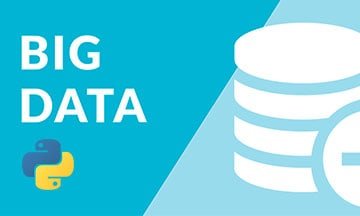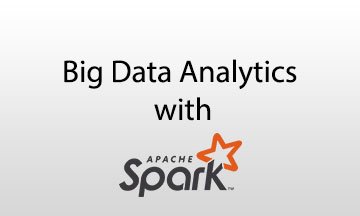Big Data Analytics and Management Training Course
| Date | Format | Duration | Fees | |
|---|---|---|---|---|
| 26 May - 30 May, 2024 | Live Online | 5 Days | $2050 | Register |
| 10 Jun - 14 Jun, 2024 | Live Online | 5 Days | $2050 | Register |
| 21 Jul - 23 Jul, 2024 | Live Online | 3 Days | $1400 | Register |
| 16 Sep - 24 Sep, 2024 | Live Online | 7 Days | $2867 | Register |
| 17 Nov - 19 Nov, 2024 | Live Online | 3 Days | $1400 | Register |
| 08 Dec - 12 Dec, 2024 | Live Online | 5 Days | $2050 | Register |
| Date | Venue | Duration | Fees | |
|---|---|---|---|---|
| 12 May - 16 May, 2024 | Doha | 5 Days | $4345 | Register |
| 13 May - 17 May, 2024 | Dubai | 5 Days | $4250 | Register |
| 24 Jun - 28 Jun, 2024 | Dubai | 5 Days | $4250 | Register |
| 02 Jul - 04 Jul, 2024 | Doha | 3 Days | $3500 | Register |
| 15 Jul - 19 Jul, 2024 | Dubai | 5 Days | $4250 | Register |
| 19 Aug - 23 Aug, 2024 | Dubai | 5 Days | $4250 | Register |
| 02 Sep - 13 Sep, 2024 | Dubai | 10 Days | $8150 | Register |
| 07 Oct - 11 Oct, 2024 | Dubai | 5 Days | $4250 | Register |
| 18 Nov - 22 Nov, 2024 | Dubai | 5 Days | $4250 | Register |
| 01 Dec - 03 Dec, 2024 | Riyadh | 3 Days | $3500 | Register |
| 09 Dec - 13 Dec, 2024 | Dubai | 5 Days | $4250 | Register |
| 22 Dec - 26 Dec, 2024 | Riyadh | 5 Days | $4345 | Register |
Course Overview
There have been some astonishing developments in data-collecting technologies in recent times, which have changed the way organisations make informed decisions.
This Big Data Analytics and Management Certification Course provides an introduction to big data analytics for all business people, including those with no previous experience in data modelling or analytics.
You will understand how data analysts define, calculate, and make business decisions in the areas of marketing, human resources, finance, and operations, and develop data mastery and a rational mindset that will help you make calculated conclusions.
The Big Data Analytics and Management training will also enable you to apply your skills to interpret a real-world data set and make appropriate business strategy recommendations.
What is the aim of this ‘Big Data Analytics and Management Certification’ program? This course is intended to affect the way you think about converting data for the purpose of better decision-making. It focuses on how data can be used to successfully increase profits in various business settings.
You will learn how to model future demand trends, forecast the outcomes of competing policy alternatives and choose the best course of action for effective risk management.
The Big Data Analytics and Management Certification training course will present and discuss topics that will provide insights into a variety of real-world business challenges, explain the techniques methods and software that can be used to face these challenges quantitatively, as well as deal with any issues involved in managing data.
This Zoe training course will empower you with the ability to describe the reasons behind the surplus of new big data platforms from the perspective of big data management systems and analytical tools.
Course Objectives
Upon completing this Big Data Analytics and Management course successfully, participants will be able to:
- Recognise different data elements in your own work and in everyday life problems
- Clarify the need to design a Big Data Infrastructure Plan and Information System Design
- Detect the common data operations that can be performed by various types of data
- Choose a data model to meet the characteristics of your data requirements
- Apply effective techniques to manage the streaming of data
- Distinguish between a conventional Database Management System and a Big Data Management System
- Understand the need for different types of data management systems in different contexts
Training Methodology
This is an interactive Big Data Analytics and Management training program and will consist of the following training approaches:
- Lectures
- Seminars & Presentations
- Group Discussions
- Assignments
- Case Studies & Functional Exercises
Similar to all our courses, this program also follows the ‘Do-Review-Learn-Apply’ model.
Organisational Benefits
Companies who send in their employees to participate in this Big Data Analytics and Management course can benefit in the following ways:
- Give your employees the ability to analyse an immense volume of data in order to arrive at critical business insights that have a huge impact on your company’s policy and marketing strategies
- Provide your workforce with flexible and cost-effective professional development opportunities
- Analyse case studies in this domain and be able to apply successful techniques in your organisation
- Comprehend the principles and practice of data analytics and the context in which this operates
Personal Benefits
Professionals who participate in this Big Data Management and Analytics course can benefit in the following ways:
- Learn and work with data analysis and management tools that are used widely
- Study each of the major fields of data analytics in an organised and logical manner
- Increase your demand as a professional with experience in data analytics because most organisations are now looking for ways to exploit the power of big data
- Recognise how to apply big data analytics across various industries
- Obtain certification in emerging concepts like data analytics and management, that will show potential employers and professional peers that you are an individual who takes your career seriously
- Keep yourself updated with the latest industry trends in technology and use them to make better decisions at your workplace, thereby increasing your chance of success, and improving your credibility subsequently
Who Should Attend?
This course would be suitable for:
- Data analysts
- Business intelligence analysts
- Data visualiser
- Data and analytics managers
- Any professional who is interested in learning how data can be used in decision-making
Course Outline
MODULE 1: INTRODUCTION
- Welcome to Big Data Modelling and Management
- Why is this a New Course in the Big Data Specialisation?
- Summary of Introduction to Big Data
MODULE 2: CHARACTERISTICS OF DATA
- Big Data Management “Must-Ask Questions”
- Data Ingestion
- Data Storage
- Data Quality
- Data Operation
- Data Scalability and Security
- Energy Data Management Challenges
- Gaming Industry Data Management
- Flight Data Management
MODULE 3: DATA MODELS
- Introduction to Data Models
- Data Model Structures
- Data Model Operations
- Data Model Constraints
- Introduction to CSV Data
- What is a Relational Data Model?
- What is a Semi-structured Data Model?
- Relational Data Model of CSV Files
- Semi-structured Data Model of JSON data
- Array Data Model of an Image
- Sensor Data
MODULE 4: DATA MODELS
- Vector Space Model
- Graph Data Model
- Other Data Models
MODULE 5: DATA STREAMING
- Data Model vs. Data Format
- What is a Data Stream?
- Why is Streaming Data different?
- Understanding Data Lakes
- Exploring Streaming Sensor Data
- Exploring Streaming Twitter Data
MODULE 6: DBMS AND DATA MANAGEMENT
- DBMS-based and non-DBMS-based Approaches to Big Data
- From DBMS to BDMS
- Redis: An Enhanced Key-Value Store
- Aerospike: A New Generation KV Store
- Semi-structured Data
- Relational Data
MODULE 7: DATA OPTIMISATION
- How to Build an Optimisation Model
- Optimising with Solver
- Network Optimisation Example
- Solver on Mac
- Solver in Google Sheet
MODULE 8: DATA SUPPORTING DECISION-MAKING
- Comparing Decisions in Uncertain Settings
- Simulating Uncertain Outcomes in Excel
- Interpreting and Visualising Simulation Output
MODULE 9: DECISION TREES
- Decision Trees
- Using Simulation with Decision Trees
- Using Optimisation Together with Simulation
- Advanced Session on Optimisation
MODULE 10: DESCRIPTIVE ANALYTICS
- What is Descriptive Analytics?
- Survey Overview
- Net Promoter Score and Self-Reports
- Survey Design
- Passive Data Collection
- Media Planning
MODULE 11: PREDICTIVE ANALYTICS
- Introduction to Predictive Analytics
- Asking Predictive Questions
- Regression Analysis
- Beyond Period
- Making Predictions Using a Data Set
- Data Set Predictions
- Probability Models
- Implementation of the Model
- Results and Predictions
MODULE 12: PRESCRIPTIVE ANALYTICS
- What is Prescriptive Analytics?
- Using the Data to Maximise Revenue
- Parameters of the Model
- Market Structure
- Competition and Online Advertising Models











